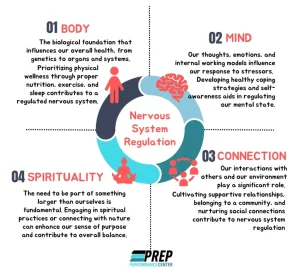
Starting a career in fitness can be exciting and fulfilling. Many fitness instructors work flexible hours on nights and weekends when clients have time for exercise.
Fitness instructors typically specialize in leading classes such as yoga, spin cycling, Pilates and dance as well as high intensity interval training (HIIT). A strong combination of hard and soft skills are crucial to their profession.
What Is a Fitness Instructor?
Fitness instructors in gym settings lead exercise classes. They may plan and choreograph their own classes, or teach prechoreographed ones provided by their company of employment. Fitness instructors spend much of their time “walking the floor”, engaging with gym members while helping them use equipment properly.
Career in fitness education involves helping participants maintain appropriate exertion levels while preventing injuries by monitoring them and providing corrective instruction as necessary. They may assist those with special needs or health conditions create tailored fitness programs and routines.
Many people confuse fitness instructor and personal trainer. A personal trainer works directly with clients while fitness instructors lead group exercise classes; typically the latter job pays less and relies more heavily on their studio’s reputation than its pay. Fitness instructors may also assist clients with designing nutritional plans to enhance overall health and wellbeing.
Education and Training Requirements
Fitness instructors typically possess either a high school diploma or its equivalent; some pursue an associate or bachelor’s degree in exercise science or kinesiology for added credentialing. Coursework covers anatomy, biology, nutrition and exercise techniques in order to equip clients with the skills required to help achieve their fitness goals.
Fitness trainer certification programs typically offer online study materials and exam preparation tools, and require registration for their exam within six months of purchasing study materials in order to become certified. Passing with at least a minimum score will guarantee certification status.
Work as a fitness instructor requires strong customer service and problem-solving abilities in order to create rapport with clients and meet their needs. Some programs also require certifications in cardiopulmonary resuscitation (CPR) and automated external defibrillator (AED), so you are prepared for emergency situations when responding to emergencies. Your specialty niche may also have additional requirements such as continuing education requirements to stay abreast of trends in fitness.
Work Environment
Fitness trainers and instructors typically work in gyms or fitness centers, though some also manage facilities managed by businesses or organizations, such as company wellness centers for employees. Some fitness instructors may even teach classes or personal training sessions at clients’ homes.
Fitness instructors need strong customer-service skills in order to establish lasting relationships with their clients and entice them to hire personal trainers or take classes taught by them. Listening carefully to clients, providing constructive feedback in an optimistic fashion and motivating them toward hard work are also necessary qualities of effective instructors.
Fitness instructors typically possess an enthusiasm for fitness that they developed prior to becoming trainers or instructors, which helps create a class atmosphere and foster client loyalty. Furthermore, fitness instructors must report any incidents they see at work to their managers or workplace health and safety representatives immediately.
Job Duties
Fitness instructors are responsible for instructing, motivating, and offering feedback that helps their clients meet their fitness goals. These individuals must possess extensive knowledge about various areas of physical fitness as well as be capable of tailoring workout routines to accommodate clients with injuries or health concerns.
Fitness instructors may assist in the front desk area by greeting new members, signing them up for memberships and giving tours. At smaller facilities, fitness instructors might take on more administrative responsibilities like updating point-of-sale (POS) records, training new employees or promoting the gym and its services.
Fitness instructors frequently specialize in one class type, such as yoga, cardio or high-intensity interval training to gain more of a following within their classes. Strength training or aerobics might also be a focus. Such specialization can lead to career advancement opportunities within an organization; some professionals even pursue masters degrees in exercise physiology!







